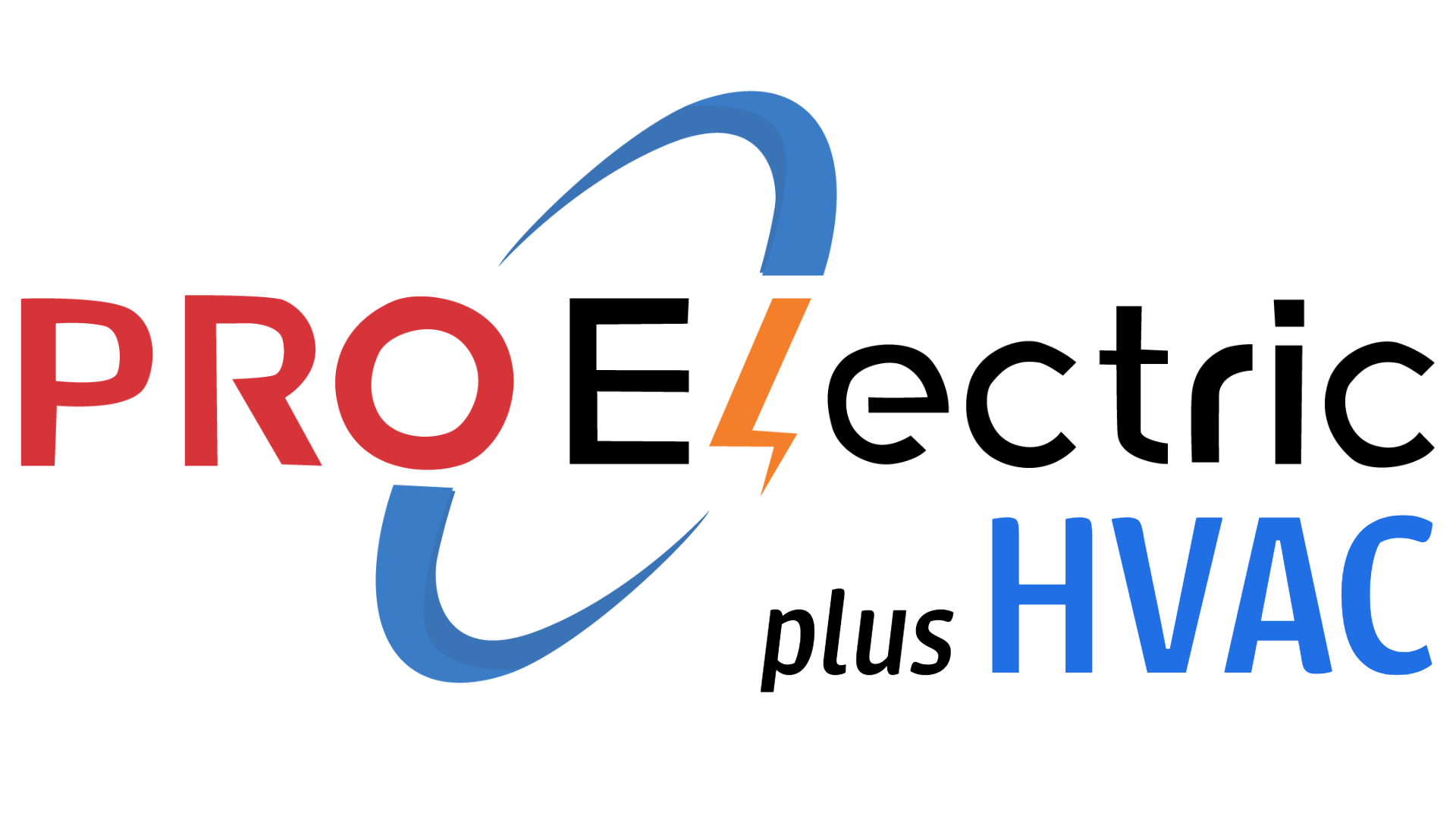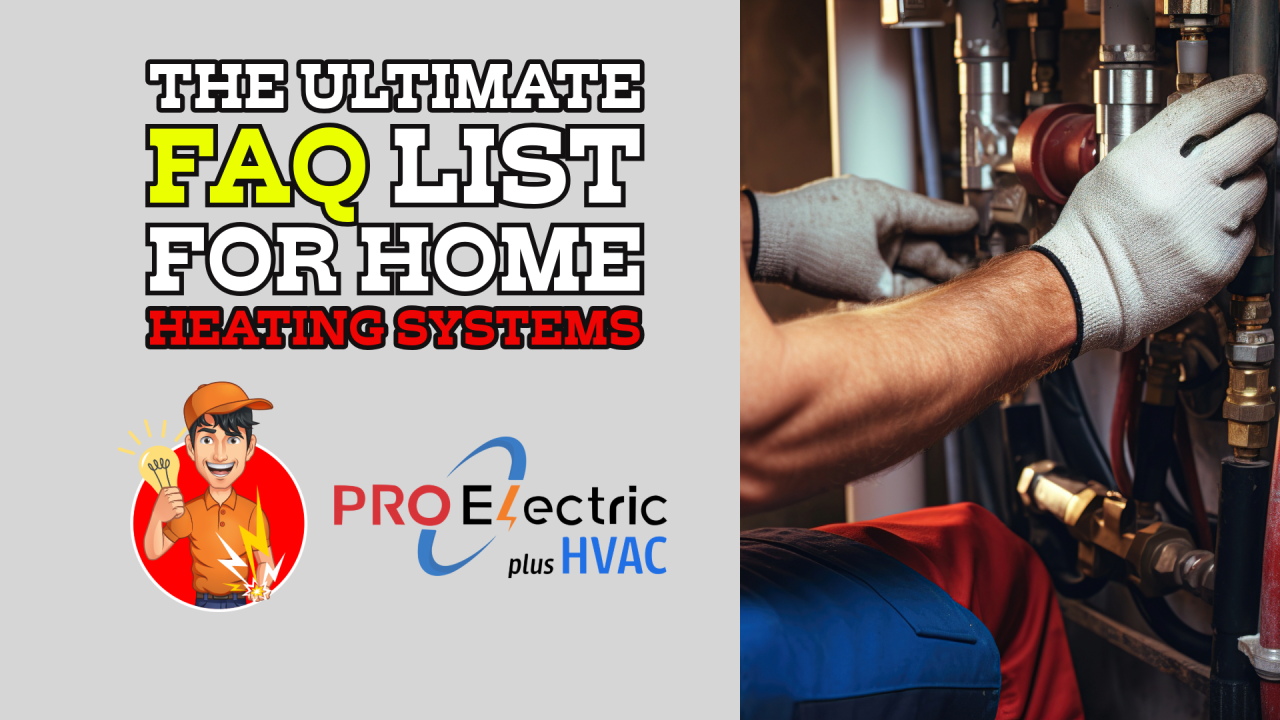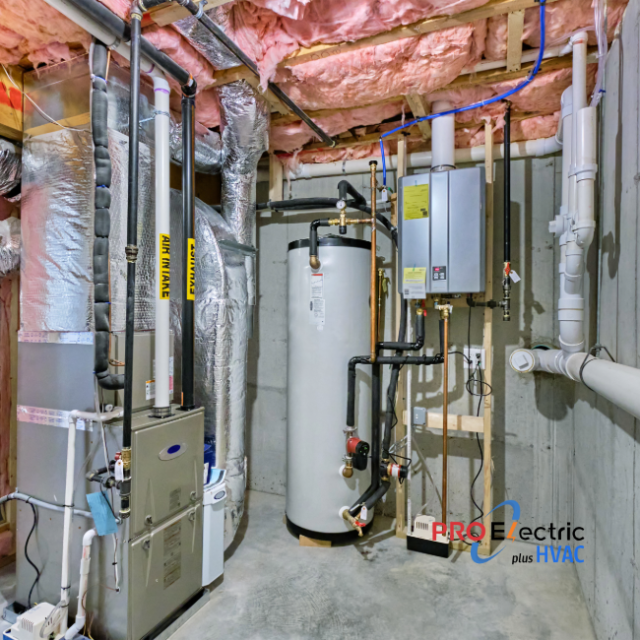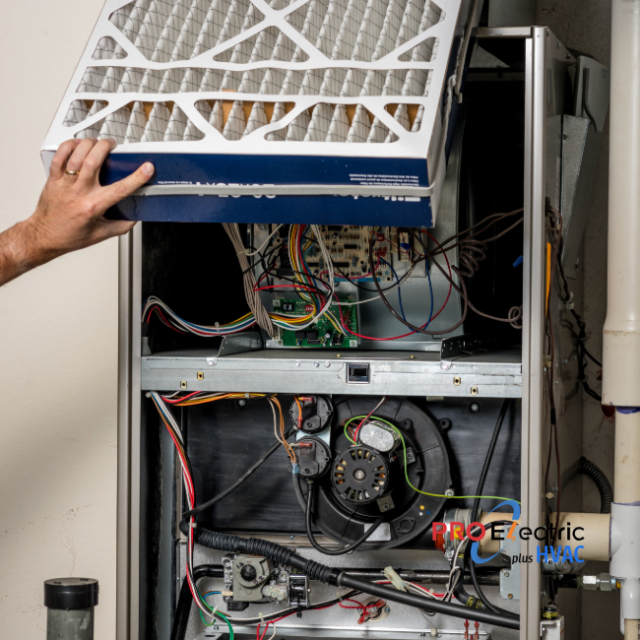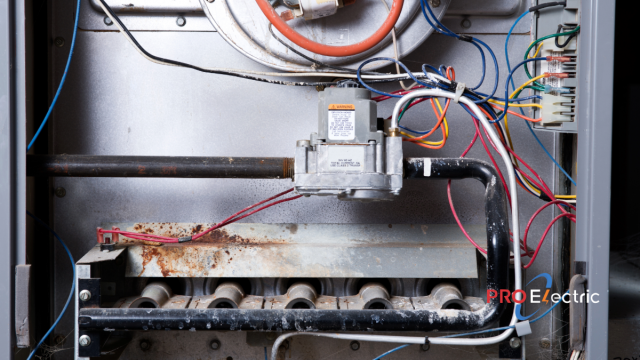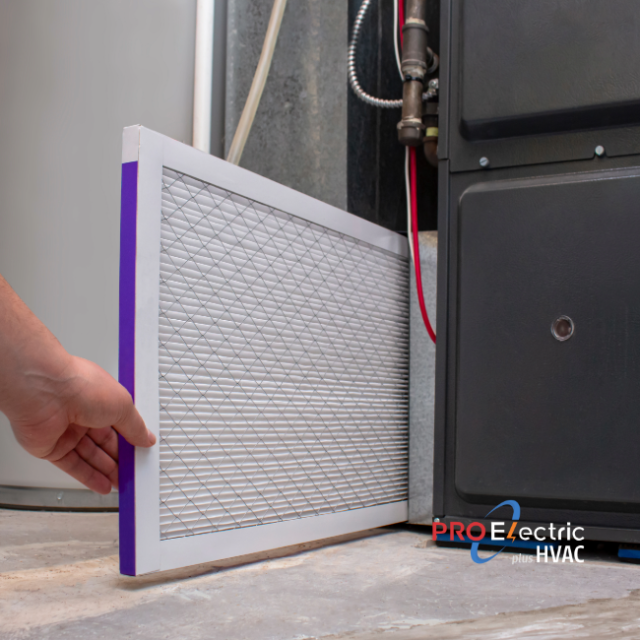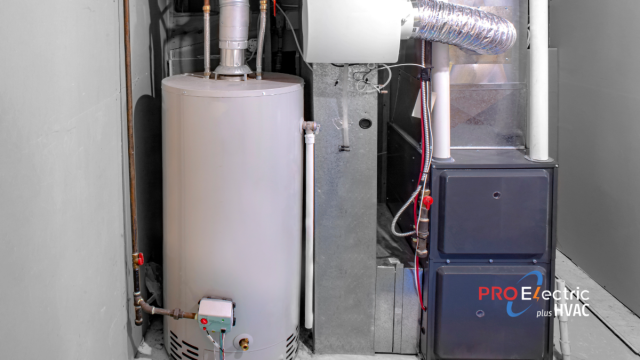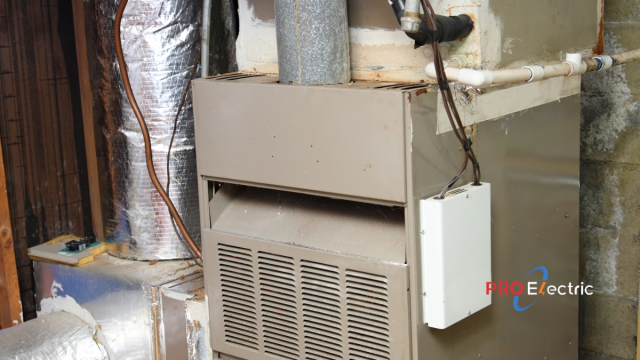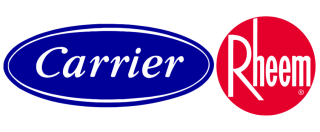As a skilled HVAC technician, I can answer homeowners’ most common questions about heating installation, repair, maintenance, replacement, and troubleshooting typical issues.
Consider these subjects when buying a heating system.
Heating Installation
How can I select the home heating system for my house?
The size of your house, existing infrastructure, insulation quality, available energy sources, and your budget could all influence your selection of the correct heating system.
Common choices include electric furnaces, oil or gas furnaces, boilers, heat pumps, and radiant heat methods.
We assess your house heating requirements, from climate to installation costs, and recommend the right system for comfort and performance.
What should I look for in a new furnace or heating unit?
Key factors are:
- Energy Efficiency (AFUE Rating): Higher AFUE ratings suggest more efficient units and lower energy bills.
- Fuel Type: Gasoline, gas, electrical, or propane – based on supply and price in your town.
- Size & Capacity: Proper sizing ensures efficient heating without excess energy consumption.
- Installation Requirements: Compatibility with existing ductwork or new infrastructure.
- Budget: Upfront costs versus long-term energy savings.
- Reliability and Warranty of Brand: Choosing reputable brands with solid warranties for peace of mind.
Do I install a gas, electric, or oil heating unit?
The very best choice depends upon availability, price, and your home’s needs:
Gas Furnaces: Usually more effective and less costly when natural gas is out there. They heat rapidly and are colder climate appropriate.
Furnaces – Electric: Lower upfront costs and typically higher operating costs make installing simpler. It is ideal for smaller houses or regions with mild winters.
Oil Furnaces: Typically are efficient and effective for heating big spaces, but oil prices can be volatile, and storage tanks are necessary.
Just how long will the heating system installation usually take?
The installation process depends upon system complexity and type.
- Furnace Installation: One to three days, including removing the existing unit, setting up the brand new furnace, and any ductwork modifications.
- Heat Pump Installation takes 1 to 2 days, depending on whether it’s a brand-new installation or a replacement.
- Boiler Installation: It might take two to 4 days because it often involves significant plumbing work.
What permits are needed for a brand-new heating system?
Permit requirements differ by location but typically include:
- Mechanical Permits: For installing furnaces, boilers, or heat pumps.
- Electrical Permits: If the installation involves electrical work.
- Permits for Plumbing: For systems that call for new or altered plumbing connections (like boilers).
An expert HVAC contractor handles the permits and uses local building codes and regulations.
Permiting requirements are unique for Fairfax, Arlington, Loudoun, and Prince William Counties.
Should I put in a home heating system myself or work with an expert?
Installing a heating system requires gas lines, electric connections, and calibrations.
My best advice is to hire a licensed HVAC expert.
Incorrect installation can cause safety risks, reduced efficiency, system failures, and voided warranties.
Professional installation makes the system work safely and effectively and by all standards and codes.
Just how much does heating system installation cost on average?
Costs depend upon system type & size, geographical location, and installation complexity (these are just estimates).
- Installation of Gas Furnace: 2,500 to 7,500
- Installation Of Electric Furnace: 1,500 to 5,000
- Installation Of Oil Furnace: 3,000 – 7,000
- Heat Pump Installation: 4,000 – 8,000
- Boiler Installation: 4,000 – 12,000
Getting multiple quotes from local HVAC contractors will enable you to determine what’s costing you and what’s an excellent match for your budget.
How can I locate a great HVAC contractor to install it?
When you search for an HVAC contractor:
- Ask for Licenses & Certifications: Verify they are certified and licensed in your area.
- Read Reviews and Ask References: Look for excellent feedback from past customers.
- Verify Insurance: They ought to carry liability and worker’s comp.
- Get Multiple Quotes: Compare pricing and services from multiple contractors.
- Ask About Experience: Pick an experienced contractor in heating system installations.
- Check Warranties: Be sure they provide warranties on equipment and labor.
What exactly is the big difference between a furnace and a heat pump?
Furnace: For heating, furnaces burn gas (electric), oil, or gas to generate heat and ductwork throughout the home.
Heat Pump: This device provides cooling and heating by moving heat from inside to outside.
In heating mode, it draws heat from outside (even in low temperatures) and brings it indoors.
Heat pumps generally use less energy in moderate climates.
The decision between a furnace and a heat pump depends on climate, energy efficiency objectives, and whether cooling and heating are required in one unit.
How do heating performance and installation costs impact the AFUE rating?
AFUE measures a furnace’s Fuel to heat conversion Efficiency.
More efficient furnaces get better AFUE ratings:
- More Efficiency (90% + AFUE): Low operating cost and decreased energy consumption. They usually have higher upfront installation costs but could cut costs over time.
- Lower Efficiency (80% AFUE): This furnace is initially cheaper to buy, but it is less efficient and results in higher energy bills.
Choosing a furnace with the proper AFUE rating balances upfront costs with long-term energy savings.
Higher-efficiency units might also qualify for energy rebates or incentives to offset installation costs.
Heating Maintenance
How frequently should I service my heating system?
Routine maintenance is needed for correct operation and longevity. It’s recommended to:
- Schedule Professional Maintenance: More than once yearly, preferably before the heating season starts.
- Do Basic Maintenance: Based on use and filter type, homeowners must check and replace or clean filters every 1-3 months.
Routine maintenance prevents breakdowns, makes your heating system operate efficiently, and extends its life.
What are some crucial maintenance tasks for any furnace or heating unit?
Essential maintenance tasks include:
- Inspecting & Replacing Filters: Allows airflow & efficiency.
- Cleaning/Inspecting Burner Assemblies: Prevents soot buildup and secures operation.
- Checking and Cleaning the Blower Motor: Maintains good air distribution.
- Inspecting Electrical Connections: This stops electrical issues and keeps you safe.
- Lubricating Moving Parts: Lowering friction and wear on components.
- A thermostat check: It offers precise temperature control.
- Ventilation System Inspecting: Properly exhausts combustion gases.
- Safety Controls Testing: Verifies operation of safety mechanisms.
How can I clean or even change my heating filter?
Simple to clean or even replace your heating filter:
- Turn Off the Heating System: Switch off the power as a precaution.
- Locate the Filter: Typically in the return air duct or blower compartment.
- Remove the Filter: Take out the old filter gently.
Clean or Replace
- Reusable Filters: Wash using water and let them dry out before reinstalling.
- Disposable Filters: Exchange with a newer filter of similar type and size.
- Install the Filter once again: Be sure it fits in the slot.
Maintaining your filter enhances the air quality, system efficiency, and the life of your heating unit.
Why should my heating system need regular maintenance?
Regular maintenance is crucial because:
- Increases Efficiency: Keeps the system running optimally with decreased energy usage.
- Prevents Breakdowns: Identifies & resolves issues before they turn into serious problems.
- Extends Lifespan: Proper upkeep can extend the life of your heating system by several years.
- Maintains Air Quality: Prevents mold & dust buildup.
- Ensures Safety: Detects and repairs safety hazards like gas leaks or harmful electrical components.
- Saves Money: Reduces repair costs and lowers electric bills in the long run.
Could regular maintenance prolong the life span of my furnace or heater?
Regular maintenance resolves minor issues before they become serious, reduces damage to parts, and makes your heating system function effectively.
A correctly fitted heater or furnace may easily last 15-20 years or more based on type and use with appropriate maintenance.
What signs my heating system needs maintenance?
Signs your heating system must be maintained include:
- Heating Performance is Reduced: Your home isn’t heating as effectively.
- More Energy Bills: Noticeable increase in energy costs without increased usage.
- Strange Noises: Abnormal sounds like rattling, squealing, and banging are noticed.
- Odors Not Pleasant: Musty or even burning odors from the unit.
- Cycling frequently: The heater switches on and off more often than usual.
- Visible Leaks: Water or oil leaks across the unit.
- Thermostat Problems: Inconsistent or inaccurate temperature readings.
- Yellow Burner Flame: Indicates incomplete combustion along with possibly safety risks.
How can I clean the blower motor and inside components?
Cleaning internal components entails:
- Turn Off the System: Switch the heater off and disconnect power.
- Access the Blower Compartment: Remove the access panel to access the motor.
- Remove Dust & Debris: Clean dust from the blower motor, fan blades, and surrounding areas with a vacuum or brush.
- Inspect Components: Look for wear or damage on belts, bearings, and other parts.
- Lubricate Moving Parts: Use suitable lubricants for moving parts as the manufacturer instructs.
- Assemble the Unit again: Replace the access panel and revert power to the system.
Though some of these regular maintenance chores can be accomplished by homeowners, a professional HVAC technician should handle internal part cleaning and inspections.
Should I schedule professional maintenance on my heating system yearly?
Yes, schedule annual professional maintenance.
A technician can examine everything, clean critical elements, check refrigerant levels (in case necessary), and catch problems early.
This prevents your heating system from failing suddenly and prolongs its life.
What maintenance works on a central heating system?
Maintenance tasks on central heating systems include:
-
Regular Filter Replacement or Cleaning
-
Cleaning/Inspecting Burner Assemblies
-
Observing and Cleaning the Blower Motor
-
Checking & Cleaning Heat Exchanger
-
Inspecting Electrical Connections & Components
-
Lubricating Moving Parts
-
Safety Controls Testing
-
Examining & Cleaning the Ventilation System
-
Proper System Calibration
-
Thermostat Settings
How can I keep mildew and mold away from my heating system?
To avoid mold and mildew:
- Maintain Proper Humidity: Keep indoor humidity below 60%.
- Change or Clean Filters Frequently: Prevents moisture accumulation and mold growth.
- Ensure Drainage is Proper: Clear the condensate drain lines to avoid water accumulation.
- Clean Evaporator Coils (if applicable): Prevents moisture from getting on the coils.
- Use a Dehumidifier: A dehumidifier will manage moisture in places with high humidity.
- Schedule Regular Maintenance: Mold issues could be found early with professional inspections.
- Provide Proper Ventilation: Appropriate airflow controls moisture and also inhibits mold growth.
Heating Repair
What heating issues do homeowners most frequently encounter?
Common heating problems are:
- Not enough Heating: The system doesn’t heat the home effectively.
- Heater Will Not Turn On: The unit doesn’t start.
- Cycling frequently: The heater turns on and off too frequently.
- Strange Noises: Like rattling, squealing, or pounding.
- Furnace Leaks: Water or oil leaks across the unit.
- Thermostat Problems: Inaccurate temperature control or defective thermostat.
- Pilot Light Problems (gas furnaces): Issues maintaining or igniting the pilot light.
- Electrical Problems: Faulty wiring or even circuit breakers ripping.
- Filters are Dirty or Clogged: Lowers airflow & efficiency.
- Heat Exchanger Cracks: May cause carbon monoxide leakages.
Why does my heater not create sufficient heat?
Insufficient heating could result from several things:
- Filters are Dirty or Clogged: Restricts airflow and also decreases heating efficiency.
- Fuel Supply Low: Lack of gas or oil impacts heating performance.
- Thermostat Faulty: Either incorrect readings or defective thermostat.
- Blocked or Leaky Ductwork: Stops warm air from getting to all places.
- Dirty Burner Assemblies: Lowers combustion efficiency.
- Worn Out Blower Motor: Impairs air distribution.
- Improperly Sized Unit: An undersized heater struggles to warm the space.
- Heat Exchanger Problems: Cracks or damage decrease heating efficiency and could be unsafe.
An expert HVAC specialist can identify the leading cause and make repairs required to restore heating.
Why could a furnace shut off unexpectedly?
Unexpected furnace shutdowns could be:
- Not Producing Heat: Caused by dirty filters, blocked vents, or even failing parts that cause safety shut-offs.
- Thermostat Faulty: Sends the incorrect message to the furnace, leading it to switch off too early.
- Ignition Problems: Pilot light or electronic ignition system difficulties.
- Gas Supply Problems: A furnace may shut down due to inconsistent or insufficient gas supply.
- Electrical Problems: Defective wiring or component failure interrupts power to the system.
- Limit Switch Failure: A bad limit switch might turn off the furnace to prevent it from overheating.
Identifying and repairing the root cause requires an HVAC tech inspection and maintenance.
Why does my heating system blow cold rather than warm air?
Heating systems might blow cold air due to:
- Thermostat Problems: Either incorrect settings or defective thermostat.
- Pilot Light/Ignition Problems: Stops the furnace from getting started and creating heat.
- Filters are Dirty or Clogged: This limits airflow, leading to the unit overheating and burners shutting off.
- Blower Motor Faulty: Impairs air distribution.
- Fuel Supply Low: Insufficient gas or oil affects heating performance.
- Heat Exchanger Problems: Cracks or damage decrease heating efficiency.
- Blocked Vents/Ductwork: Stops warm air from attaining rooms.
- Electrical Problems: Faulty wiring or parts stop heating operation.
A professional HVAC technician can identify and repair the issue that causes cold air to blow from your heating system.
How can I correct a heating system which will not turn on?
If your heating system doesn’t turn on, try out these steps:
- Check Thermostat: Be sure it’s switched to a heating setting and the temperature exceeds the room temperature.
- Inspect the Power Supply: Ensure the furnace switch is on and the circuit breaker hasn’t shattered.
- Check the Pilot Light or Ignition System: Ensure the pilot light is lit or the electronic ignition works.
- Look for blown fuses: Replace any heating system with blown fuses.
- Check the Gas Supply (for Gas Furnaces): Ensure the gas valve is available and there are no gas supply issues.
- Look at the Furnace Door: Certain furnaces have safety switches that will not function unless the door is shut correctly.
If none of these steps solve it, contact an HVAC professional for diagnosis & maintenance.
What if my heater makes strange noises?
Strange noises out of your heater could indicate problems:
- Rattling: Parts are loose, or debris is in the unit.
- Squealing or Screeching: Worn or slipping belts or issues with the blower motor.
- Banging/Clanging: Delayed ignition/expansion/contraction of metal components.
- Buzzing/Humming: Electrical issues or even failing components.
- Grinding: Major mechanical issue with motors or bearings.
If you hear unusual sounds, switch off the heater and examine the unit for apparent problems.
Why does my furnace leak water and oil?
Water or oil leaks from your furnace could be from:
- Condensate Drain Line Clogged: This stops water from draining properly, leading to water falling back and leaking.
- Damaged/Rusted Drain Pan: Can not collect and channel condensate well.
- Heat Exchanger Leaks: Cracks or damage may cause water or oil leaks.
- Improper Installation: Leaks can happen with misaligned components.
- High Humidity Levels: Too much moisture can overtake the drainage system.
- Broken Seals or Gaskets: Allow oil or water to escape from internal components.
Clean the condensate drain line and examine the drain pan to repair a leaking furnace.
If the issue continues, call an HVAC professional for an assessment and repair to avoid additional harm and keep your equipment safe from operation.
How can I troubleshoot a heater that blows only cool air?
If your heater is blowing air but not warming it:
- Check Thermostat Settings: Be sure the heating setting is switched to the temperature and that the temperature exceeds the room temperature.
- Replace or Clean the Air Filter: A dirty filter limits airflow and decreases heating efficiency.
- Check the Pilot Light or Ignition System: Ensure the pilot light is lit or the electronic ignition works.
- Check the Gas Supply (for Gas Furnaces): Ensure the gas valve is available and there are no gas supply issues.
- Examine the Blower Motor: Check it’s operating and distributing air correctly.
- Look for Blocked Vents or Ductwork: Verify that all vents are unobstructed and open.
If none helps, you should call a technician to identify and repair the problem.
Why does a blower motor of a heating system fail?
Blower motor failure could occur because:
- Wear & Tear: Motors can fail because of repeated usage over time.
- Lack of Maintenance: Dust and debris buildup can hinder motor function.
- Electrical Problems: Voltage surges, bad wiring, or capacitor troubles could destroy the motor.
- Overheating: Lack of adequate airflow or obstructed ventilation may result in the motor to heat up and die.
- Mechanical Stress: Bearings and other moving parts could wear out and result in motor failure.
- Poor Installation: Incorrect installation could place excessive stress on the motor.
Regular maintenance and timely fixes can avoid blower motor failure and keep your heating system operating smoothly.
How can I reset my heating system if it does not work?
Reset your heating system:
- Turn Off the System: Shut down the thermostat and furnace power switch.
- Check the Circuit Breaker: Reset any heating system-tripped breakers.
- Wait a Few Minutes: Let the system cool and reset.
- Turn the System Back On: Set the thermostat to the heating setting and adjust the required temp.
- Check for Power: Be sure the furnace powers up and begins operating.
If your system still doesn’t work after resetting, contact our HVAC professional to identify and repair the issue.
Heating Replacement
When should I change my outdated heating system?
Consider replacing your old heating system if:
- Age of Unit: Heating systems last roughly 15-20 years. If your system is approaching or past this age, replacement might be cheaper than repairs.
- Frequent Repairs: If your heater needs frequent repairs, the expenses increase, and replacement is better.
- Soaring Energy Bills: Older units consume less energy and are more costly.
- Inconsistent Heating: Having difficulties maintaining a steady temperature inside your house.
- Environmental Regulations: Older systems could utilize outdated technologies.
- Noise Levels: More recent units run quietly.
- Safety – Concerns: Such problems as cracked heat exchangers may cause dangers like carbon monoxide leaks.
What exactly are signs my furnace or heater is time to replace?
Signs your heating system is time to replace include:
- Age of Unit: Nearing or exceeding fifteen years.
- More Energy Bills: Without any apparent reason, indicating inefficiency.
- Frequent Breakdowns: Regular repairs suggest the unit is wearing out.
- Poor Heating Performance: Failure to maintain desired temperatures.
- Refrigerant Leaks (for Heat Pumps): Persistent leakages can be expensive.
- Strange Noises: Excessive or odd sounds.
- Environment Concerns: Older refrigerants are getting phased out.
- Rising Repair Costs: Repairs cost more than replacements.
- Visible Rust or Damage: Physical degradation of components.
How can you effectively dispose of an old heating system?
The responsible disposal of your old heating system includes:
- The best way to Call Your HVAC Contractor: Many provide removal and recycling.
- Recycling Programs: For heating-specific programs, check local recycling facilities.
- Manufacturer Take Back: Others have take-back or recycling programs with the manufacturer.
- Facility for Hazardous Wastes: If your unit has refrigerants or oil inside, it must be handled by professionals to prevent environmental damage.
Never dispose of a heating system in regular trash because refrigerants, oil residues, and metals can be environmental hazards.
Upgrade to a new heating system?
Benefits of switching to a brand new home heating system:
- Increased Energy Efficiency: Older units consume less energy and have reduced electric bills.
- Enhanced Heating Performance: Much more accurate temperature control and faster heating.
- Advanced Features: Intelligent thermostats, variable speed motors, and better humidity control.
- Environmental Benefits: New systems utilize less polluting technologies.
- More Comfort: More even and reliable heating throughout your house.
- Lower Maintenance Costs: New systems require fewer repairs and usually carry warranties.
- Safety Improvements: Contemporary units have safety features to avoid carbon monoxide leaks.
Can I replace individual parts of my heating system rather than the whole device?
Occasionally, only replacing specific parts can prolong the life span of your heating system.
Common replaceable parts include:
Filters: It is simple and cheap to replace frequently.
Thermostats: Updating to a smart thermostat might offer better management and efficiency.
Blower Motors: In case of malfunctioning, replacement might repair air distribution.
Ignition System: Repair or replacement of electronic ignitions or pilot lights.
Heat Exchanger Components: Minor cracks or leaks can be repaired, but significant damage may require replacement.
Electrical Components: Replacing defective relays, capacitors, or wiring.
However, replacing the whole unit might be less expensive and quicker if your system is old or several components are failing.
How can I select the best replacement heating system for my house?
How to select the appropriate replacement heating system:
Evaluate Your Needs: Learn about the home size and heating needs.
Energy Efficiency: Look for units with high AFUE ratings for much better efficiency.
Type of System: Select furnaces, heat pumps, boilers, or radiant heating according to your house layout and heating requirements.
Brand & Reliability: Go for durable, supportive brands.
Budget: Take upfront costs with long-term energy savings.
Features: Consider variable speed motors, intelligent controls, and enhanced filtration.
Seek guidance from an HVAC tech about the proper system for your requirements and on appropriate installation and sizing.
What financing is available for heating system replacement?
Options for financing heating system replacement consist of the following:
Manufacturer Financing: Some manufacturers provide low or no-interest financing plans.
HVAC Contractor Financing: Many contractors provide in-house financing or partner with financial institutions.
Home Equity Loans/Lines of Credit: Leveraging your home equity can offer excellent terms.
Credit Cards: Short-term financing is offered, but rates may be high.
Government Incentive: Seek rebates, tax credits, or incentives for energy-efficient upgrades.
Compare choices to find the lowest monthly payment and best financing for your budget.
How does a new heating unit make energy efficient?
New heating units contain the latest technology and improved designs for higher energy efficiency.
Features include:
Enhanced AFUE Ratings: Heating is better, and energy is saved.
Advanced Burners/Heat Exchangers: Enhance combustion efficiency and heat transfer.
Variable Speed Blower Motors: Airflow is adjusted per demand for efficiency.
Smart Thermostats: Adapt heating schedules to usage patterns.
Enhanced Insulation & Sealing: Lowering energy loss and improving system performance.
Eco-Friendly Technologies: Use cleaner fuels and cut emissions.
These improvements reduce energy costs, lower environmental impact, and provide a comfy house.
What incentives or rebates are provided for replacing my heating system?
Examples of rebates and incentives for heating system replacement are:
Federal Tax Credits: These are available for high-efficiency heating systems and upgrades to conserve energy.
State & Local Rebates: Several states and cities provide rebates on energy-efficient heating methods.
Utility Company Rebates: Some utilities reward customers for installing energy-efficient units.
Manufacturer Rebates: Seek out promotional rebates or discounts from manufacturers.
Incentives for Financing: Contractor or manufacturer financing at low or zero interest.
Energy Efficiency Programs: Programs like Energy STAR offer resources and incentives for upgrading to efficient systems.\
Just how long will a brand-new heating system generally last?
An appropriately maintained heating system lasts 15 to 20 years.
The lifespan depends on usage, maintenance routines, installation quality, and system components.
Regular maintenance extends the life of your heating unit, but failure to upkeep can happen too early.
Standard Heating Issues & Troubleshooting Heating Noises.
Why does my furnace rattle?
Rattling noises from your furnace could be:
- Loose Parts: Components like the blower motor, fan blades or panels might become loose over time.
- Debris in the Unit: Foreign items, including dust, dirt, or tiny debris, can enter the unit and make noise.
- Ductwork Problems: Loose or vibrating ducts might carry rattling sounds.
Switch off the furnace to avoid rattling, and check for lost parts or clutter around the windowpane.
Tightening screws and clearing debris could resolve the issue.
If the noise continues, have an HVAC technician examine and secure internal components.
What makes my heater buzz or hum?
Buzzing or even humming noises can be:
- Electrical Problems: Electrical connections that are loose or faulty can produce buzzing sounds.
- Faulty Blower Motor: Motor bearings or some other components might be failing.
- Transformer Problems: Issues with the unit’s transformer cause humming noises.
- Refrigerant Flow (for Heat Pumps): Vibrations of refrigerant traveling throughout the system.
If you keep hearing buzzing or humming, turn off the furnace and have a professional technician check the system for possible electrical hazards or component damage.
Why does my heating system create grinding sounds?
Grinding sounds might mean severe issues like:
- Motor Bearings: Worn or destroyed bearings in blower or other motors.
- Fan Issues: Foreign items or debris caught in the fan’s blades.
- Compressor Problems (for Heat Pumps): Internal damage in the compressor.
- Grinding noises suggest possible component failure. Switch off the unit and call an HVAC professional immediately to avoid more damage and ensure safe operation.
How do I prevent my furnace from squealing?
Squealing noises might be brought on by:
- Worn Belts: If your furnace uses belts, they might be worn or loose.
- Blower Motor Problems: Bearings or other motor components might be failing.
- Debris in the Unit: Moving objects could cause squealing.
If the squealing does not stop, look for loose or worn belts and replace them if necessary.
Also, check the blower motor for wear and clear away debris.
If the issue persists, call a professional technician to identify and repair the problem.
Heating Performance Problems
Why does my heating system never get warm enough?
Insufficient heating can occur for many reasons:
- Filters are Dirty or Clogged: Restricts airflow and also decreases heating efficiency.
- Fuel Supply Low: A lack of gas or oil damages heating performance.
- Dirty Burner Assemblies: Reduce combustion efficiency.
- Thermostat Faulty: Either the thermostat settings are incorrect or defective.
- Blocked or Leaky Ductwork: Stops warm air from attaining rooms.
- Worn Out Blower Motor: Impairs air distribution.
- Improperly Sized Unit: An undersized heater struggles to warm the space.
- Heat Exchanger Problems: Cracks or damage lower heating efficiency.
An expert HVAC specialist can diagnose the leading cause and make the repairs needed to restore heating.
HVAC Electrical Problems
Why will my heater not turn on?
Potential reasons include:
- Circuit Breaker Tripped: Reset the breaker to bring back power.
- Blown Fuse: Replace any heating system blown fuses.
- Faulty Power Cord: Inspect for damage and replace if needed.
- Thermostat Problems: Be sure it’s set correctly and functioning.
- Faulty Capacitor or Relay: This can prevent the unit from starting up.
- Disconnected/Damaged Wiring: Needs professional repair.
- Faulty Limit Switch: Prevents the furnace from running in case it senses overheating.
If easy checks fail, have a professional HVAC technician examine and repair electrical components.
What if my heating system blows circuit breakers?
When your heating system is ripping circuit breakers:
- Reset the Breaker: Switch it back on if it trips once more.
- Check for Overloading: Ensure the circuit isn’t overloaded with other appliances.
- Inspect the Heating System: Look for electrical problems or damage on the surface area.
- Check the Wiring: Faulty or damaged wiring may create short circuits.
- Check the Blower Motor: A failing motor might draw too much current.
- Check the Capacitor: A deteriorating capacitor makes the blower motor use more energy.
Avoid repeatedly resetting the breaker as this may cause fire danger.
Get an HVAC specialist to identify and restore the electrical issue at the cause.
How can I reset my heating unit circuit breaker?
To reset the breaker circuit:
Local Electrical Panel: the main electrical panel, typically in basements, sheds, or basements.
Identify the Heating System Breaker: It is typically labeled.
Turn the Breaker OFF
Wait for a Minute. Let the breaker reset.
Turn the Breaker Back On
Check the Heating System: Be sure it powers up and functions correctly.
If the breaker instantly trips again, don’t reset it; call an experienced technician.
This indicates a power problem that needs to be dealt with.
Boiler & Radiator Issues
Why does my boiler not work?
A boiler might stop working due to:
No Power Supply: Tripped circuit breakers/blown fuses.
Pilot Light/Ignition Problems: Pilot light or electronic ignition system troubles.
Low Water Pressure: Insufficient water pressure could stop the boiler from operating.
Thermostat Problems: Either incorrect settings or defective thermostat.
Clogged/Dirty Burner Assemblies: Reduce combustion efficiency.
Circulator Pump Faulty: Stops hot water from circulating through the system.
Leaking or Damaged Components: This can impact boiler operation and efficiency.
Check the power cord: Look for apparent damage or debris. Then, look at the thermostat and check the water pressure to identify and repair a non-working boiler.
Call a technician for repair for more complex issues like burner or pump problems.
What makes a boiler overheat?
The causes of boiler overheating are:
Low Water Levels: Insufficient water in the boiler restricts heat dissipation.
Blocked/Dirty Heat Exchanger: The transfer of heat is damaged, so the boiler heats up.
Faulty Circulator Pump: This stops water circulation and causes heat buildup.
Thermostat Problems: Overheating might be caused by incorrect settings or a broken thermostat.
Kettling: The buildup of limescale or sediment in the boiler restricts water flow.
Pressure Relief Valve Malfunctioning: Fails to release excessive pressure, causing overheating.
Blocked Ventilation: Prevents proper combustion of combustion gases from occurring, trapping heat inside.
Regular maintenance could avoid boiler overheating, including washing the heat exchanger and checking the water level and circulation.
Call a technician to diagnose and repair the underlying issue if overheating continues.
How can I look at a faulty boiler within my heating system?
How to fix a faulty boiler:
- Check Power Supply: Check that the boiler is getting power and that circuit breakers aren’t tripped.
- Check the Thermostat: Verify that it’s set appropriately and operating correctly.
- Examine Water Pressure: Check the pressure gauge (usually 1-1.5 bars).
- Look for Error Codes: Certain boilers display error codes for particular problems.
- Check the Pilot Light or Ignition System: Make sure the pilot light is lit, or the electronic ignition is working.
- Look for Leaks or Damage: Check for leakages, oxidation, and damage to the body.
- Filters Have to be Clean or Replaced: Ensure proper airflow and heat transfer.
- Safety Controls for Tests: Verify that safety features like the pressure relief valve are operating.
If none of these steps help, call a specialized HVAC technician to examine and fix the boiler.
Other Common Heating System Problems
Why is my heating system short-cycling?
Here are some reasons why short cycling happens:
- Oversized Heating Unit: Cools too quickly and causes frequent shutdowns.
- Placement of Thermostat: Located in a drafty area or near heat sources, giving inaccurate readings.
- Low Fuel: Causes the system to get too hot and fail too early.
- Dirty Filters or Coils: Restricts airflow and causes the unit to cycle off.
- Electrical Problems: Faulty wiring or components could stop operation.
- Heat Exchanger Problems: Cracks or damage may cause safety shut-offs.
Short cycling might decrease system efficiency and increase wear and tear.
Having a professional technician diagnose and treat the issue is advised.
Why does my heater smell bad?
Bad odors from the heater can be:
- Mold & Mildew: Growth on the heat exchanger coils or in the ductwork.
- Dirty Filters: Muffled dirt and debris can produce musty smells.
- Drain Line Clogged: This could cause stagnant water and mold growth.
- Burning Smells: Indicate electrical problems or overheating elements.
- New Unit Smell: A slight odor from the brand-new heater installation should fade away as time passes.
- Infestations of Animals: Rodents or insects that nest in the unit can emit unpleasant odors.
Regular maintenance, such as cleaning filters and coils, will help avoid unpleasant odors. If odors persist, have a professional technician locate and eliminate the source.
How do I make my heating more efficient?
To boost heating efficiency:
- Regular Maintenance: Schedule yearly professional tune-ups.
- Change Filters Often: Clean airflow.
- Seal Ductwork: Stop leakages and maintain airflow.
- Upgrade to a High AFUE Unit: Energy consumption in more efficient systems is decreased.
- Use a Programmable Thermostat: Heater schedules could be optimized.
- Improve Home Insulation: Keep warm air inside & cold air out.
- Heat Burner and Exchanger Assemblies Clean: Increase heat transfer.
- Use Ceiling Fans: Help circulate warm air to help you lower your thermostat.
- Install Zoning Systems: Heat only the functional parts of the house.
These measures will enhance the functionality of your home heating system, reduce energy bills, and boost home comfort.
Why does my heater take a long time to warm my house?
Delayed heating can occur for many reasons:
- Oversized Heating Unit: Cools too fast without lowering indoor humidity.
- Dirty Filters or Coils: Restricts airflow and decreases heating efficiency.
- Bad Insulation: Let warm air go out and cold air in.
- Thermostat Problems: Incorrect readings lead to a heating response.
- Blocked/Leaky Ducts: Stops warm air from reaching all places.
- High Ambient Temperatures: Extreme outdoor heat may strain the system.
- Fuel Supply Low: Insufficient oil or gas impacts heating performance.
A professional technician can evaluate your home heating system and home and determine the issue that causes slow heating.
How does poor insulation impact my heating system?
Poor insulation causes your heating system to:
- Increased Energy Consumption: Warm air exits, and cold air enters, making the system work harder.
- Higher Utility Bills: Inefficiency & higher energy consumption.
- Heating Distribution Uneven: Some house parts might be warmer or cooler than others.
- System Lifespan Shortened: The continual overworking may cause more wear and tear.
- Increased Strain: This causes more frequent repairs and maintenance.
Better home insulation could enhance heating efficiency, energy prices, and comfort.
How do outdoor temperatures affect heating performance?
Outdoor temperatures impact heating performance in several ways:
- Very Cold Temperatures: This will strain heating systems and result in difficulty keeping indoor temperatures.
- Wind & Drafts: More heat loss means the system must work harder.
- Humidity Levels: High humidity makes the indoor environment feel warmer, impacting thermostat settings.
- System Type: Heat pumps could be less effective than furnaces in frigid locations.
Cleaning your outdoor unit (for heat pumps) of debris and maintaining it properly could reduce the influence of outdoor temperatures on heating performance.
Can pests or debris impact my heating system?
Yes, pests and debris can affect your heating system:
Pests: Rodents or insects may occupy the unit, eat wires, or block airflow.
Debris: Leaves, dirt, and other debris can block filters, vents, and airflow.
Blockages: This could result in overheating, decreased efficiency, and system problems.
Corrosion & Damage: Pests could cause corrosion of components, electrical problems, or leaks.
Examine and clean your heating system’s outdoor parts regularly and prevent future issues by installing screens or barriers to keep pests away.
Have a technician remove and secure the unit if you suspect a pest issue.
Common heating questions and answers can help you maintain your heating system.
Regular upkeep, prompt repairs, and educated choices regarding installation or replacement are essential for an energy-efficient and warm home environment.
If your system keeps running down or you want guidance, contact our HVAC professional to correct it.
